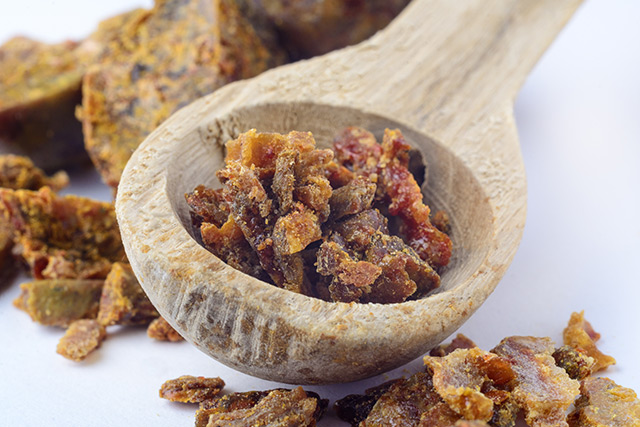Experts reveal why we always seem to crave sweets after meals
07/21/2018 / By Michelle Simmons

Some people crave something sweet after eating their meals – but why? Experts have revealed several reasons: you’re born with a preference for sweet foods, your childhood, taste, habits, and emotional needs. Here’s a deeper look at each one:
- Innate preference for sweet foods – According to nutritionist Fiona Hunter, everyone is born with a preference for sweet foods. Evolution led people to like sugary foods because they are deemed safe and nutritious compared to bitter and sour foods, which are more likely to be poisonous. In addition, people also have an evolutionary drive to desire high-energy foods like sugar. Sugar provided the energy needed for survival when food was scarce, according to clinical psychologist Jen Nash. “Brain scans show that sugar intake leads to dopamine being released in the brain area that is associated with motivation, novelty, and reward. So we can actually feel better when we eat sugar,” explained Nash.
- Taste – Having all five distinct tastes – sweet, sour, salty, spicy, and bitter – in a meal makes a person feel truly satisfied after eating. However, if one of these is lacking, such as something sweet, people tend to crave the missing taste.
- Childhood – You may have eaten sugary foods when you were a child. Hunter said that the kind of foods people tend to crave are often shaped during childhood. In general, they are based on the foods given as a reward or a treat.
- Habits – A lot of people crave something sweet due to a habitual rule, like a meal being incomplete without something sweet.
- Emotional needs – One of the reasons people crave sweet foods is because they crave some “inner” sweetness in life. Meal times are a way to connect and bond with family members, making people feel “filled” with love, care, and fun. However, some people spend their mealtimes alone, which may be the reason they have an “inner” need for sweetness. In turn, they search for other ways to fulfill this need, which is through sweet foods. Some people also crave sweet foods because they are used to using sweet treats as a reward. Meanwhile, others crave sweets because they can’t process their emotions. As a result, they tend to overeat when they are feeling emotional because they have associated sweet flavors with comfort from childhood.
Healthy ways to beat sugar cravings
Although sugar increases alertness, mood, and energy, too much sugar in the body is harmful. Sugar is stored in the body as glycogen, a fuel reserve. When glycogen stores are full, the excess sugar is turned into fat and is stored as adipose tissue. Too much sugar in the body can also lead to excessive insulin levels, resulting in health problems like insulin resistance and type 2 diabetes. Fortunately, there are healthy ways to beat sugar cravings. These include the following:
- Eat foods rich in magnesium, chromium, and zinc – Eating more foods rich in magnesium, chromium, and zinc can help improve the sensitivity of cells to insulin. In turn, this helps the body metabolize and burn sugar.
- Eat macro-nutrient balanced meals – This will help you feel satiated for longer and will stabilize blood sugar levels, which in turn, helps reduce sugar cravings.
- Manage stress levels – Too much stress and high cortisol levels can result in sugar cravings. Stress can be managed in many ways, such as meditation and exercise.
- Go natural – Instead of eating sugary junk foods, eat naturally-sweet foods or healthy foods that fight sugar cravings, such as apples, sweet potato, cinnamon, and tomatoes.
- Include healthy fats in your diet – Healthy fats offer satiety and help keep blood sugar levels steady. Healthy fats can be found in avocado, extra virgin olive oil, salmon, nuts, and seeds.
Read more news stories and studies on sugar cravings by going to Sweeteners.news.
Sources include:
Tagged Under: cravings, nutrition, sugar, sugar addiction, sugar cravings, sugary foods, sweet, sweet foods


















